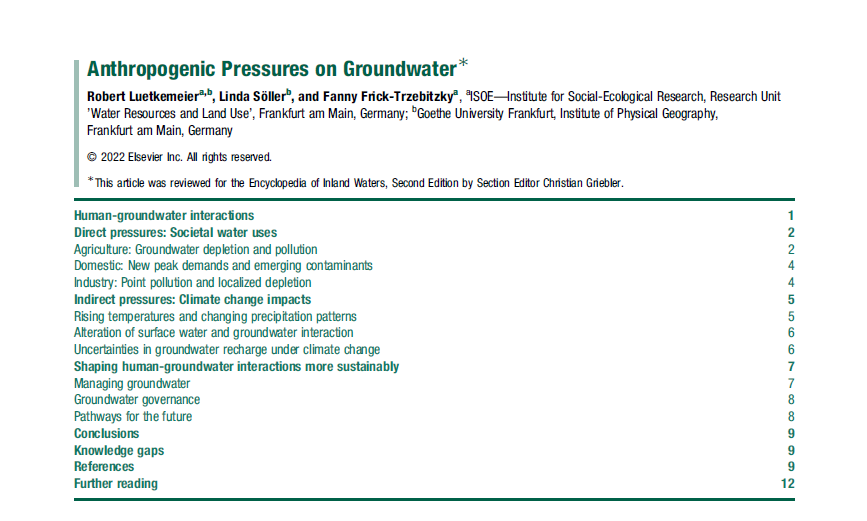
Globally, groundwater is one of the most important sources of drinking water, a key resource for food production and characterized by unique biodiversity and essential ecosystem services. It is considered as central for human development as aspired in the Agenda 2030. At the same time, groundwater bodies are threatened by massive overexploitation, pollution and increasingly entangled in telecoupling effects. In quantitative terms, recent experiences from the prolonged droughts of 2015, 2018, and 2019 in Western Europe have shown how declining groundwater levels limit drinking water production, dry out groundwater-dependent ecosystems and generate conflicts between cities and surrounding areas. In terms of quality, contamination of groundwater bodies from nitrate and trace substance inputs in many parts of the world lead to human health risks, high costs for drinking water treatment and negative impacts on ecosystems.
In this chapter, we explore the various pressures humans put on groundwater resources worldwide. We elaborate on sector-specific “direct” impacts in agriculture, the domestic sector and in industrial uses of water. We furthermore look into the “indirect” effects that stem from climate change, as precipitation patterns and temperature are likely to change. Based on these insights into human-groundwater interactions, we discuss the current state of knowledge with respect to groundwater management and governance and elaborate how respective strategies may contribute to a more sustainable groundwater use.
Read the full article:
https://doi.org/10.1016/B978-0-12-819166-8.00183-3
